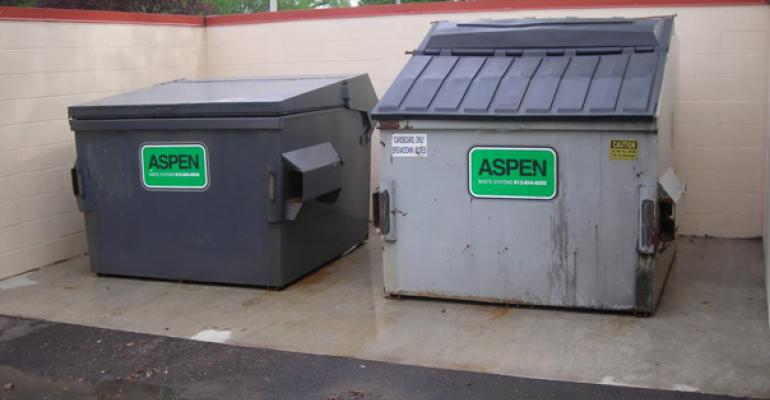Restaurant operators don’t like to talk about it, but this summer’s onslaught of record-breaking heat and humidity has many of them dealing with what is politely called “malodor management”—i.e., parts of their physical plant smell way worse when temperatures are high. What to do? The experts at Cintas Corp. have come up with a list of the top 10 sources of offensive summer scents—and what you can do to keep them under control.
Here’s how Cintas suggests tackling restaurant odor problem areas, ranked from most to least offensive.
1. Trash. Dumpsters are a haven for odors, but this can be a particular issue in the summer months. Keep doors closed to prevent the smell of garbage from creeping into the restaurant and ensure dumpsters are regularly cleared to limit odors.
2. Restrooms. A common source of malodor in any business, restroom odors can be particularly noticeable in restaurants and other facilities that children frequent. Limit odors by implementing a restroom maintenance program to ensure surfaces are regularly deep cleaned, protected and maintained. Time-release air fresheners can also help neutralize odors with pleasant fragrances.
3. Food remnants. Liquids, sewage and other organic matter can collect in drain lines if left unattended. They create rancid odors that can permeate throughout the entire restaurant. To keep drain lines free and clear of kitchen waste, implement a drain line maintenance program that uses live bacteria to remove substances and limits environmental impact.
4. Expired food. Rotten eggs and spoiled meat can quickly result in a significant odor issue if not removed. Leaving perishable food items, such as dairy products, at room temperature leads to quicker expiration. Keep a close eye on inventory and ensure perishable items are kept refrigerated at all times to maximize shelf life and reduce opportunities for spoilage.
5. Dirty dishtowels. Towels used to clean up spills, counters and tabletops absorb a variety of liquids and solid substances that can generate odors over time. Avoid letting dirty towels sit for an extended period.
6. Grout lines. When organic bacteria such as food or food byproducts spills onto a tiled floor surface, remnants collect in grout lines, which can lead to odors over time. Deep clean grout lines regularly to remove build-up and prevent odors.
7. Mops. Dirty mops not only lead to cross-contamination; they are also a source of rancid odors that can permeate into dining areas. Regularly launder mops to keep them smelling fresh—and floors clean and safe.
8. Air conditioning units. Over time, coils and filters in air conditioning units can become dirty and circulate bad odors throughout a restaurant. A regular deep cleaning service that keeps pans, coils and unit parts free of dirt and bacteria can eliminate the air conditioner as a potential odor source.
9. Mold. Summer thunderstorms and hurricanes can often result in flooding, particularly in restaurants close to large bodies of water, rivers or low-lying areas. To remove water and the potential for mold growth following a flood, work with an emergency cleanup service provider that uses ozone generators to quickly remove water and potential odor contributors.
10. Carpet. Carpeting in entryways or dining areas can provide an optimal environment for the development of mildew in humid environments if not regularly deep cleaned. Mildew can also develop when carpets are deep cleaned but not thoroughly dried. Reduce the potential for odors and downtime with an ongoing deep cleaning system that uses fast drying techniques.





